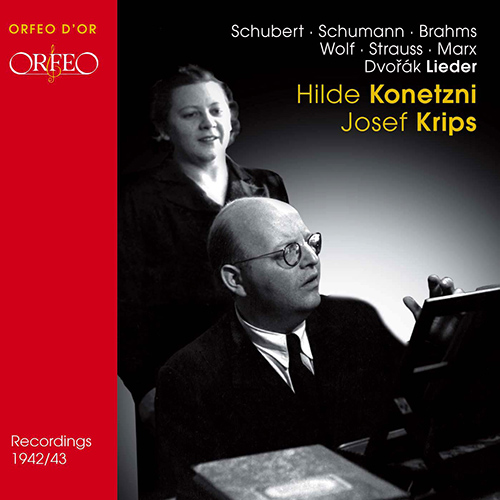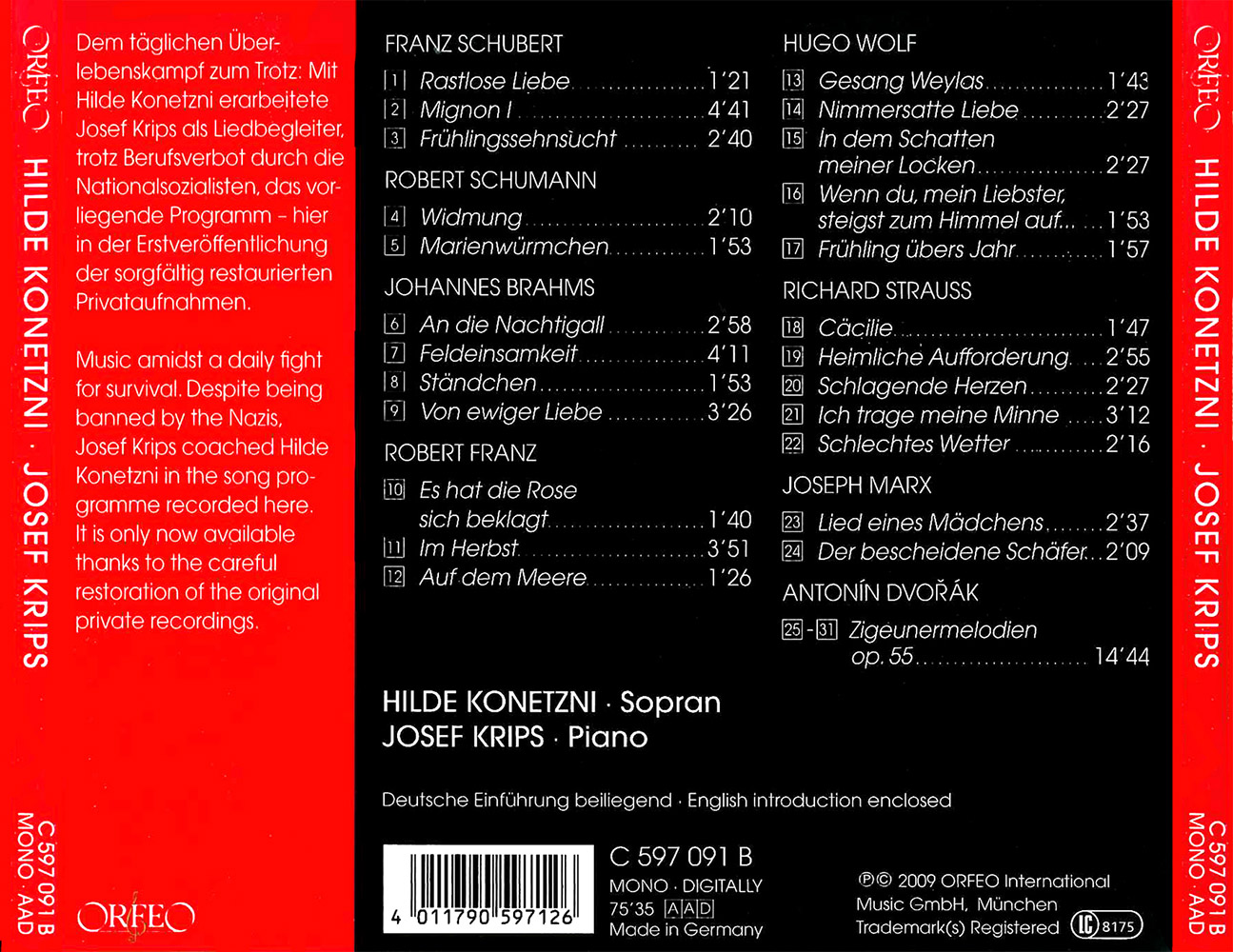Schubert - Schumann - Brahms - Wolf - Strauss - Marx
he recording conditions could hardly have been more dramatic. In the bleak mid-war winter of 1942-3, the lirico-spinto soprano Hilde Konetzni learnt a romantic song programme with Josef Krips as her accompanist and mentor (Konetzni is best known to connoisseurs as the Sieglinde in two complete recordings of the Valkyrie under Wilhelm Furtwängler). The Nazis' policies of “Aryanization” had resulted in Krips being banned from working. So his coaching activities had to be carried out “underground”, under a constant threat to his life. These private recordings were made by Hermann May, the then sound engineer of the Vienna State Opera, and can now be released on CD thanks to their careful restoration by the Eichinger recording studio in Vienna in collaboration with Gottfried Kraus. The resultant sound quality will delight more than just those interested in Josef Krips's legendary talent for carefully coaching singers - a talent that made him a model for later generations, especially as a result of the post-War Mozart performances in Vienna. One might sing Schubert and Schumann lieder with less rubato today and without the portamento usual at the time (such as we hear from Hilde Konetzni here). But all these performances are able to move us on account of the warmth and immediacy of the ensemble achieved by Konetzni and Krips. This is just as evident in the songs by lesser-known composers such as Robert Franz and Joseph Marx. And despite Konetzni's expansive timbre in all the songs, she is still able to offer a trenchant playfulness in certain of the songs by Hugo Wolf and Richard Strauss. The Gypsy Melodies by Antonín Dvorák are both the highpoint and the culmination of this recital, not just on account of the interpretative art they display, typical of the time, nor merely as a document of two artistic personalities. They are also a testament to a friendship that was sustained despite adversity, and which enjoyed a brilliant continuation in the frequent collaboration between Hilde Konetzni and Josef Krips as conductor in Viennese operatic life just after the war, when they could at last perform together in public.

















